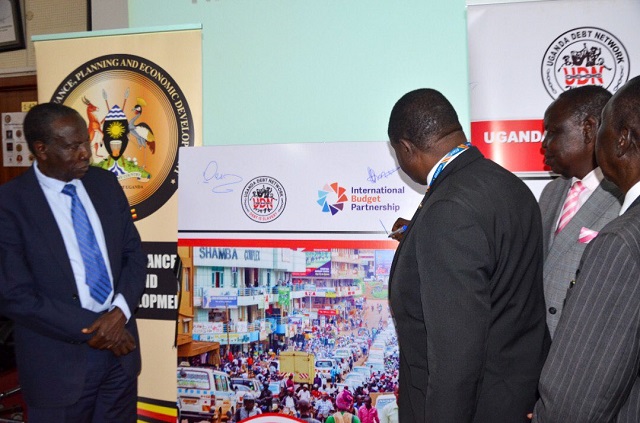
Kampala, Uganda | THE INDEPENDENT | Uganda has been ranked best in East Africa in the Open Budget Survey but falls below vital threshold.
The survey carried out by Uganda Debt Network in partnership with the US-based International Budget Partnership shows the country scored an average of 58 out of 100 owed to limited availability of budget information. This is the second time in a row that Uganda scored below the ideal threshold. It scored 58 in 2021 and 2019, 60 in 2017 and 62 in 2015.
A transparency score of 61 or above indicates a country is likely publishing enough material to support informed public debate on the budget. Uganda also scored 19 out of 100 in public participation and 59 out of 100 in budget oversight. The east African nation, meanwhile, ranked 43 out of 120 countries surveyed.
Fred Jachan Omach, the Chairperson- Board of Directors at the Uganda Debt Network said there’s need for government to publish enacted budget online in a timely manner, within three months of the budget being approved.
“Include in the Year-End Report detailed actual outcomes for revenues, comparisons between borrowing estimates and actual outcomes and comparisons between the original macroeconomic forecast and actual outcomes,” he said, adding that the supreme audit institution should improve the comprehensiveness of the audit report and mid-year review.
Currently, Uganda is in the process of preparing a new budget cycle for the next financial year.
Across the East African Community member states, Kenya scored 50, Rwanda 45, Tanzania 21 and South Sudan 15 in the transparency indicator. Burundi scored 9.
Patrick Tumwebaze, executive director at the UDN said Uganda’s OBS ranking has generally improved over time in most areas, although there are others that have not been so positive.
“As a result of OBS reports, we are glad that government has progressively been responsive to calls and recommendations for budget transparency improvement,” he said.
Finance Minister, Matia Kasaija said the new survey gives government an opportunity to evaluate its interventions and obtain feedback on the extent they are contributing to attain desired outcomes.
The survey carried out since 2006 is supported by the Ministry of Finance, Planning and Economic Development, UDN, International Budget Partnership and recently UNICEF. The exercise is carried out every two years to assess the changes over the stated period in respect to three pillars – Budget Transparency, Public Participation and Budget Oversight in 120 countries.
 The Independent Uganda: You get the Truth we Pay the Price
The Independent Uganda: You get the Truth we Pay the Price



